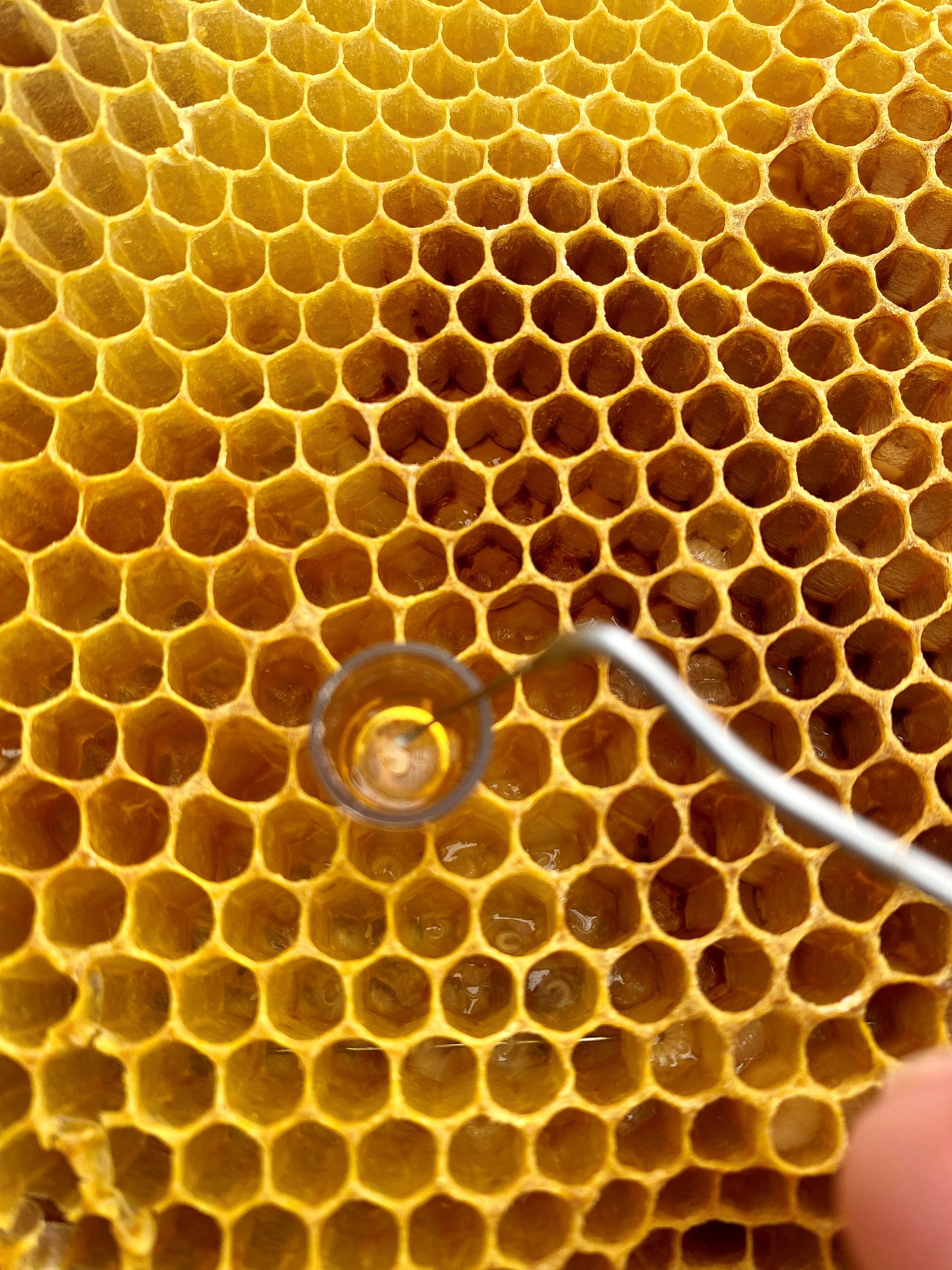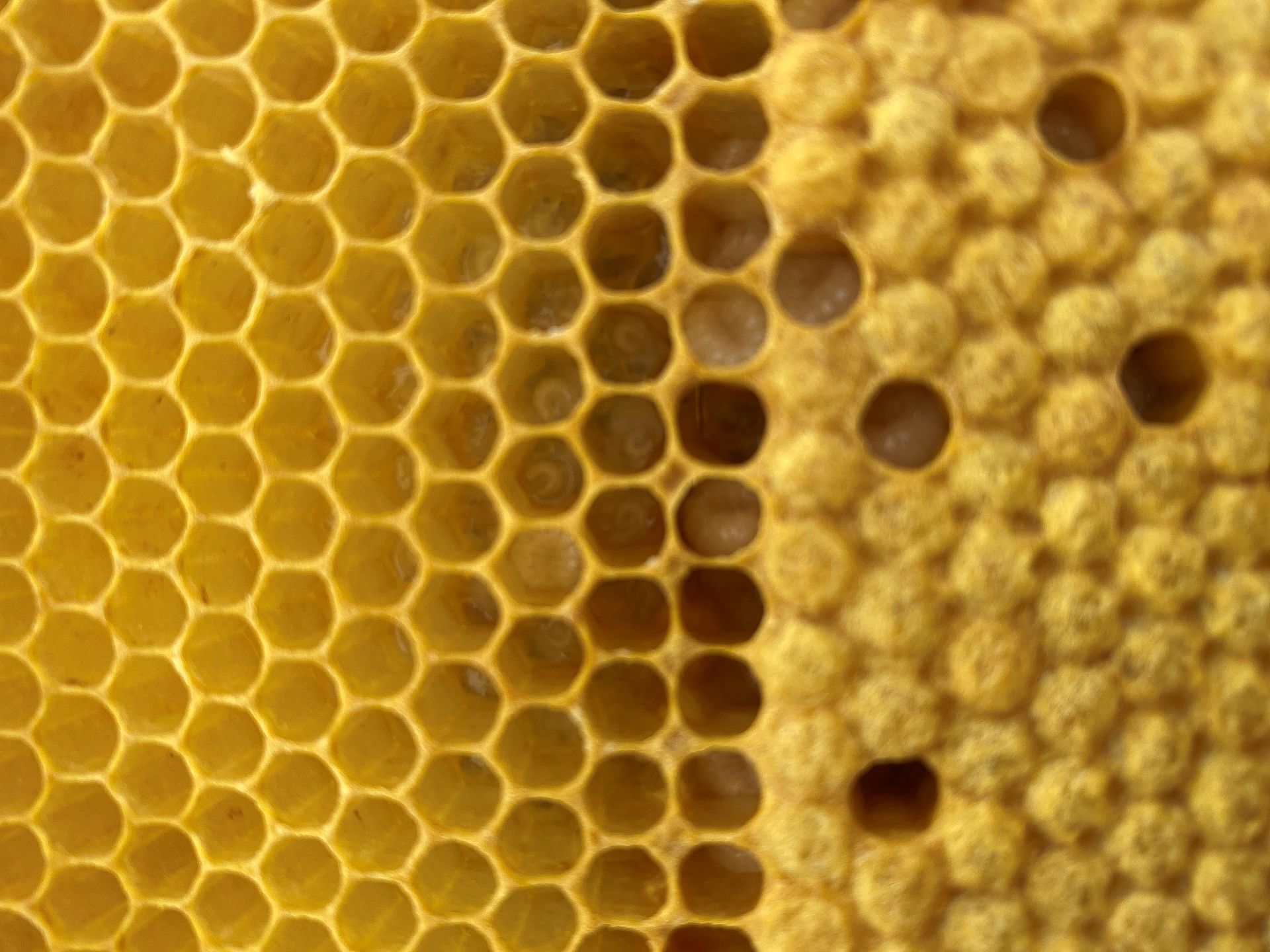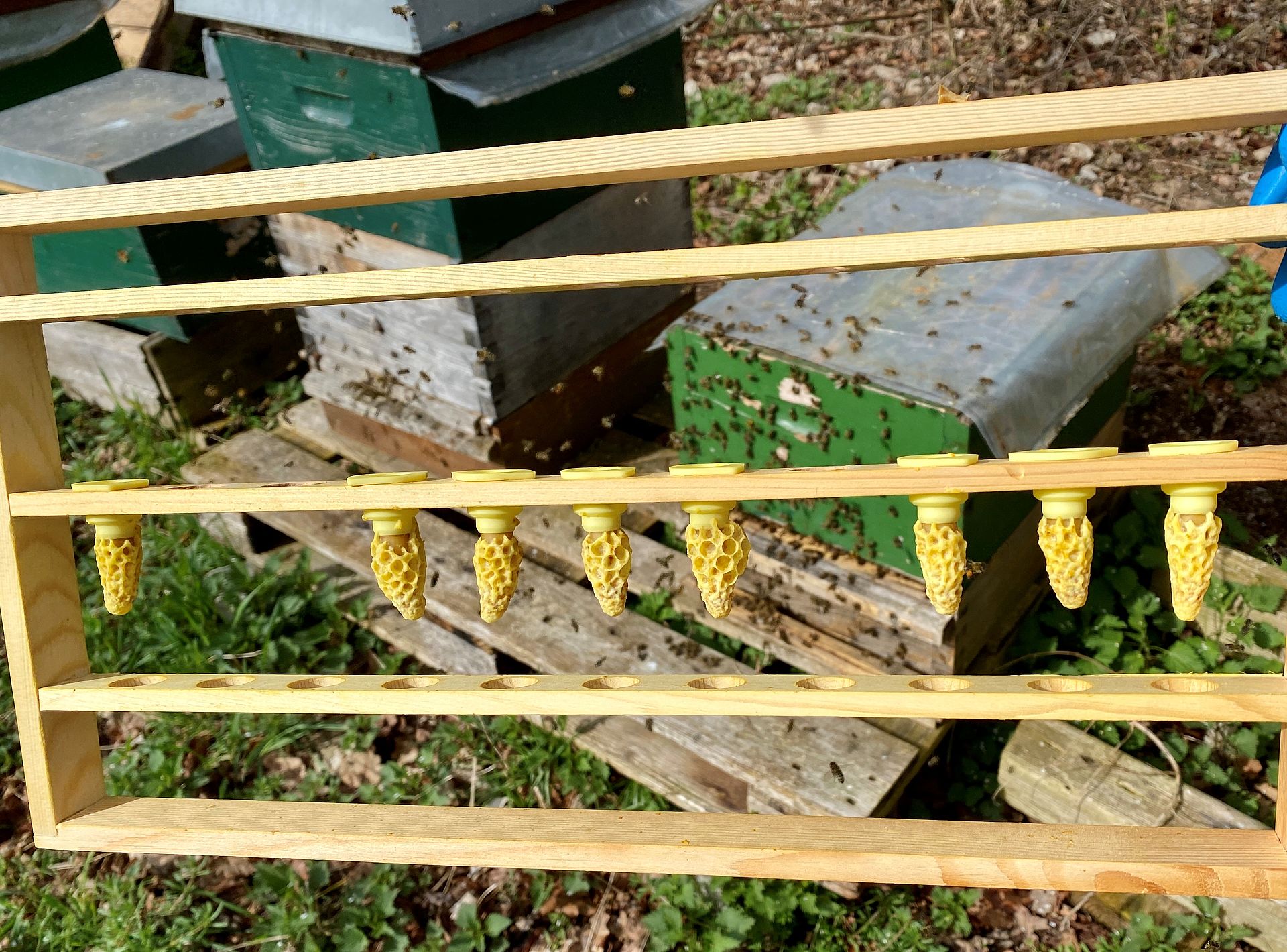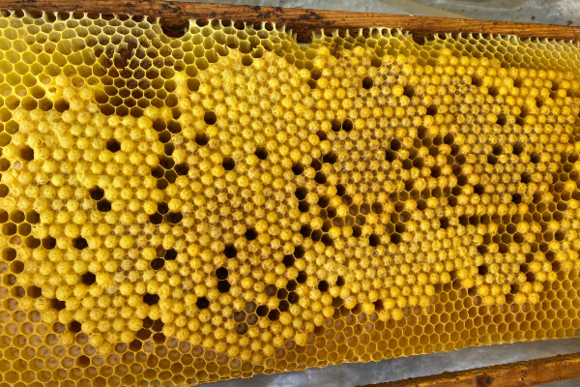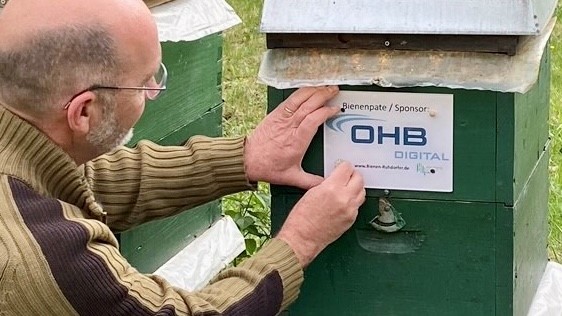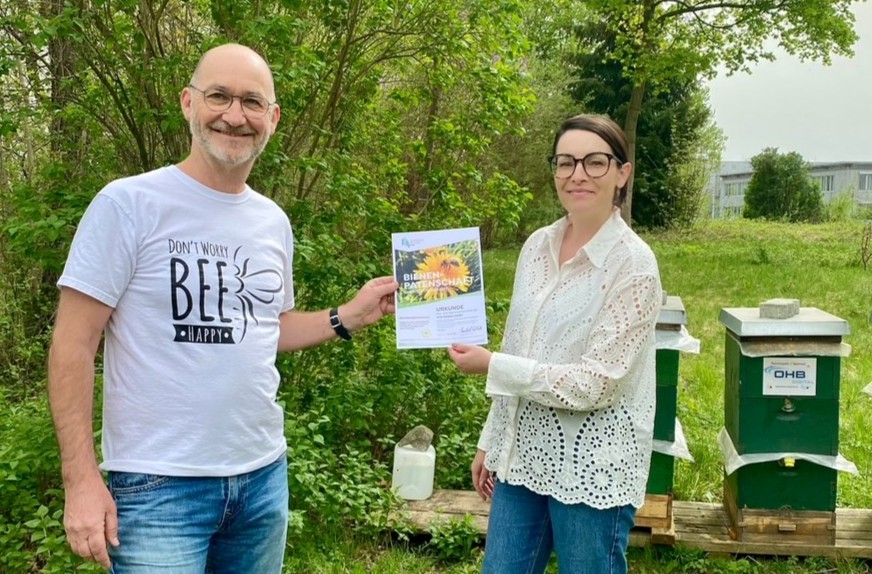Dear bee friends,
What a March!
By now, even the last of us will have noticed: the climate has changed. And what does that mean for the bees?
It has never bloomed so early in our fields and gardens. Cherry, apple, plum, dandelion and even the first rapeseed blossoms at the beginning of April! That is at least 3 weeks earlier than “normal”.
The bees are naturally delighted with the abundance of food. Some colonies are already strong enough to store the first honey in the honey chamber. But most of the food - pollen and nectar - is used for the brood. At temperatures above 20°C, the queen now lays an egg in every free cell. This egg turns into a larva after 3 days, which is fed for about a week and then capped.
If this food juice is something very special - royal jelly - then a new queen will develop from this egg, as can be seen in the cover picture.
Since my colonies have come out of the winter very differently - some have died, some are still weak and some are very strong - I have decided to breed new queens from the two strongest colonies.
To do this, a brood comb with very young larvae is taken from the breeding colony and the larvae are placed in a queen cup with a special spoon.
There are special breeding frames with holders for the queen cups, which can be easily removed later and hung in an offshoot.
A queenless colony is a colony in which the queen is missing. After one or two hours the colony becomes queenless. If you then give this colony a comb with larvae, they will raise several queen cells for a new queen. An ideal nurse colony has a lot of bees, enough food, but no brood. It then has enough energy to feed many queen cells with royal jelly.
Of course, a good queen also needs good drones for mating. I therefore try to reproduce as many drones as possible from my AGT colony. The Arbeits-Gemeinschaft-Toleranzzucht (AGT) breeds queens that cope best with varroa mites. The queens can also be taken to a so-called mating station to ensure that the queen is as pure-bred as possible.
So, that's it for now with the specialized knowledge about queen breeding. Even though there is still so much to write about.
But now the most important thing: we have a new bee sponsor!
I would therefore like to extend a warm welcome to the employees of OHB Teledata GmbH.
The sponsorship certificate was presented to Melanie Sinkovic at the beginning of April in pleasant temperatures directly at the bee colony.
Many thanks for your support, enjoy reading the Bee News and hopefully enough honey for everyone!
Many thanks also to all the other bee sponsors and partners who keep giving me the strength to do everything for our bees.
Stay healthy and confident!
Your beekeeper
Michael Ruhdorfer

